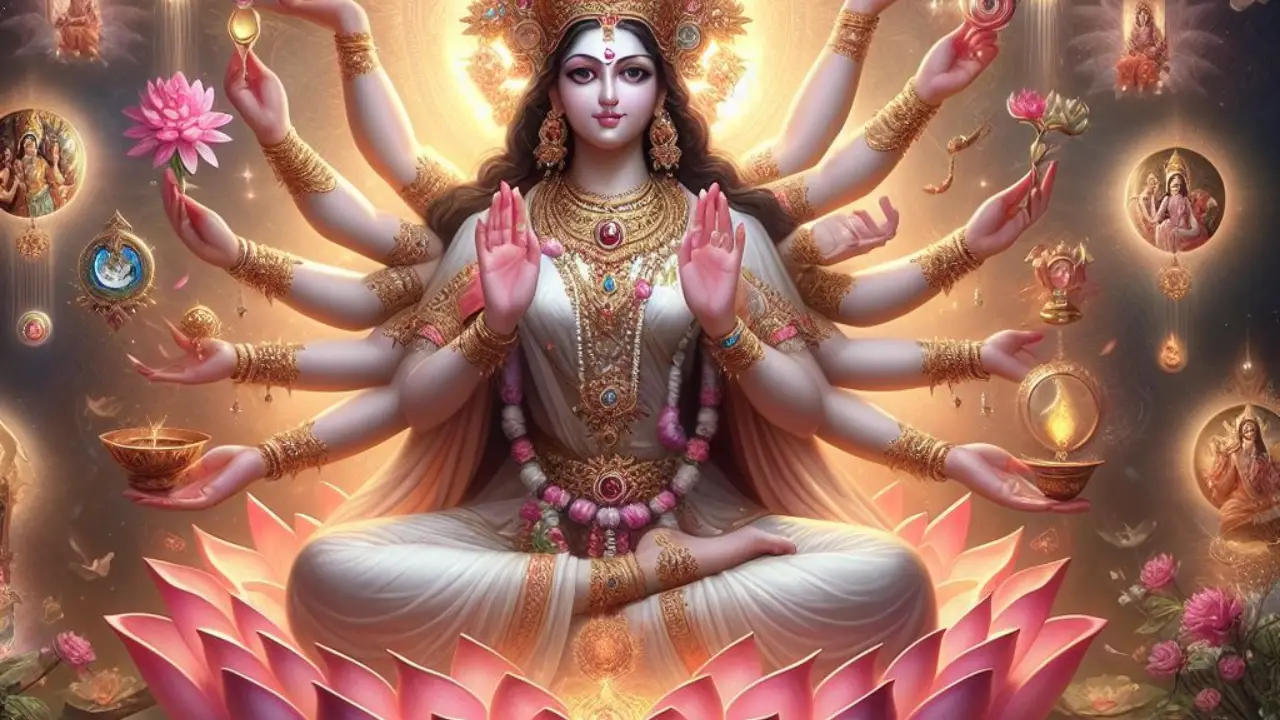In the tapestry of Hinduism, one divine entity stands out as a guardian, preserving the essence of the faith through ages: Adishakti. As we delve into the depths of Hindu philosophy, we encounter the multifaceted role of Adishakti, shaping, nurturing, and safeguarding Hindu Dharma.
Understanding Adishakti
Adishakti, often revered as the primal energy of the universe, embodies the feminine aspect of the divine. She is the embodiment of Shakti, the dynamic force that propels creation, preservation, and destruction. She is not merely a deity; she is the cosmic energy that permeates every aspect of existence.
The Creative Force
In Hindu cosmology, Adishakti is the creative force behind the universe. She is the divine mother who gives birth to all existence, nurturing it with boundless love and compassion. Through her creative energy, she manifests the diverse forms of life, from the smallest atom to the mightiest celestial body.
Preserver of Balance
As the preserver of balance, Adishakti ensures harmony and order in the cosmos. She embodies the principle of dharma, guiding beings on the path of righteousness and moral conduct. Adishakti safeguards the natural order, upholding justice and righteousness in the face of chaos and disorder.
Destroyer of Evil
When darkness threatens to engulf the world, Adishakti emerges as the destroyer of evil. She vanquishes negativity and ignorance, clearing the path for spiritual enlightenment and liberation. Adishakti’s fierce form, embodied in goddesses like Kali and Durga, symbolizes the power to overcome adversity and restore balance.
The Embodiment of Divine Feminine
The concept of the divine feminine deeply ingrains Hinduism, with Adishakti embodying its quintessence. She is not just a deity; she is the primal source from which all other goddesses emanate. She symbolizes the nurturing, compassionate, and fiercely protective aspects of the feminine energy.
The Consort of Trimurti
Adishakti often embodies the consort of the Trimurti—Brahma, Vishnu, and Shiva—symbolizing her integral role in the cosmic cycle of creation, preservation, and destruction. As Shiva’s consort, she embodies his dynamic energy (Shakti), complementing his transcendent nature with her immanent presence.
The Divine Mother
One of the most prevalent aspects of Adishakti is her role as the divine mother. She is the source of unconditional love and compassion, nurturing all living beings with her maternal embrace. Devotees often turn to her in times of need, seeking solace and guidance in her boundless grace.
The Warrior Goddess
While Adishakti is revered for her maternal qualities, she also embodies the fierce aspect of the divine feminine. As the warrior goddess, she battles the forces of darkness and ignorance, protecting her devotees from harm and ensuring the triumph of good over evil. In this aspect, she is worshipped with reverence and awe during festivals like Navaratri.
The Embodiment of Shakti
Adishakti is synonymous with Shakti—the primordial cosmic energy that animates the universe. She is the power behind every thought, action, and manifestation, guiding the flow of energy and consciousness. Through practices like yoga and meditation, devotees seek to awaken and harness this divine energy within themselves.
Adishakti in Mythology
Hindu mythology is replete with stories that highlight her significance in shaping the course of cosmic events. From her role in the creation of the universe to her interventions in the battles between gods and demons, these myths illustrate her omnipotence and omnipresence.
The Divine Trinity: Saraswati, Lakshmi, and Parvati
Adishakti is worshipped in her various manifestations, each representing a different aspect of her divine nature. As Saraswati, she embodies wisdom and knowledge; as Lakshmi, she symbolizes wealth and prosperity; and as Parvati, she represents love and devotion. Together, they form the divine trinity, revered by millions of devotees worldwide.
Adishakti in Modern Context
In today’s world, the relevance of Adishakti extends beyond religious rituals and ceremonies. She serves as a beacon of empowerment for women, inspiring them to embrace their innate strength and resilience. Through movements like Shakti empowerment and women’s rights advocacy, her message of empowerment resonates with people of all backgrounds.
The Eternal Essence
At the heart of Hindu Dharma lies the eternal essence of Adishakti—a force that transcends time and space, guiding humanity on the path of righteousness and spiritual evolution. Her presence infuses every aspect of Hindu culture, from art and literature to philosophy and theology, shaping the collective consciousness of millions of devotees.
Adishakti in Hindu Scriptures
The Rigveda praises Adishakti as the divine mother who nurtures all living beings throughout Hindu scriptures. The Devi Mahatmya, a sacred text of the Markandeya Purana, extols the glory of Adishakti and her manifestations as Durga, Lakshmi, and Saraswati.
Adishakti in Practice
In Hindu rituals and ceremonies, she holds a central place of reverence. Devotees invoke her blessings for protection, prosperity, and spiritual awakening. Devotees invoke the presence of Adishakti with devotion and humility, from elaborate Navaratri celebrations to daily prayers at home.
The Eternal Presence
In the fast-paced world of today, where values and traditions often get overlooked, Adishakti reminds us of the eternal principles of Hindu Dharma. Her presence permeates every aspect of life, guiding individuals on the path of righteousness and spiritual evolution.
Embracing Adishakti
To embrace Adishakti is to embrace the essence of Hinduism itself—a faith rooted in love, compassion, and reverence for all life. As we navigate the complexities of the modern world, let us draw inspiration from Adishakti’s timeless wisdom and embody her divine qualities in our daily lives.
What are your thoughts on the role of Adishakti in preserving Hindu Dharma? Share your insights and experiences in the comments below. Let’s continue the conversation and deepen our understanding of this divine force that sustains us all.

